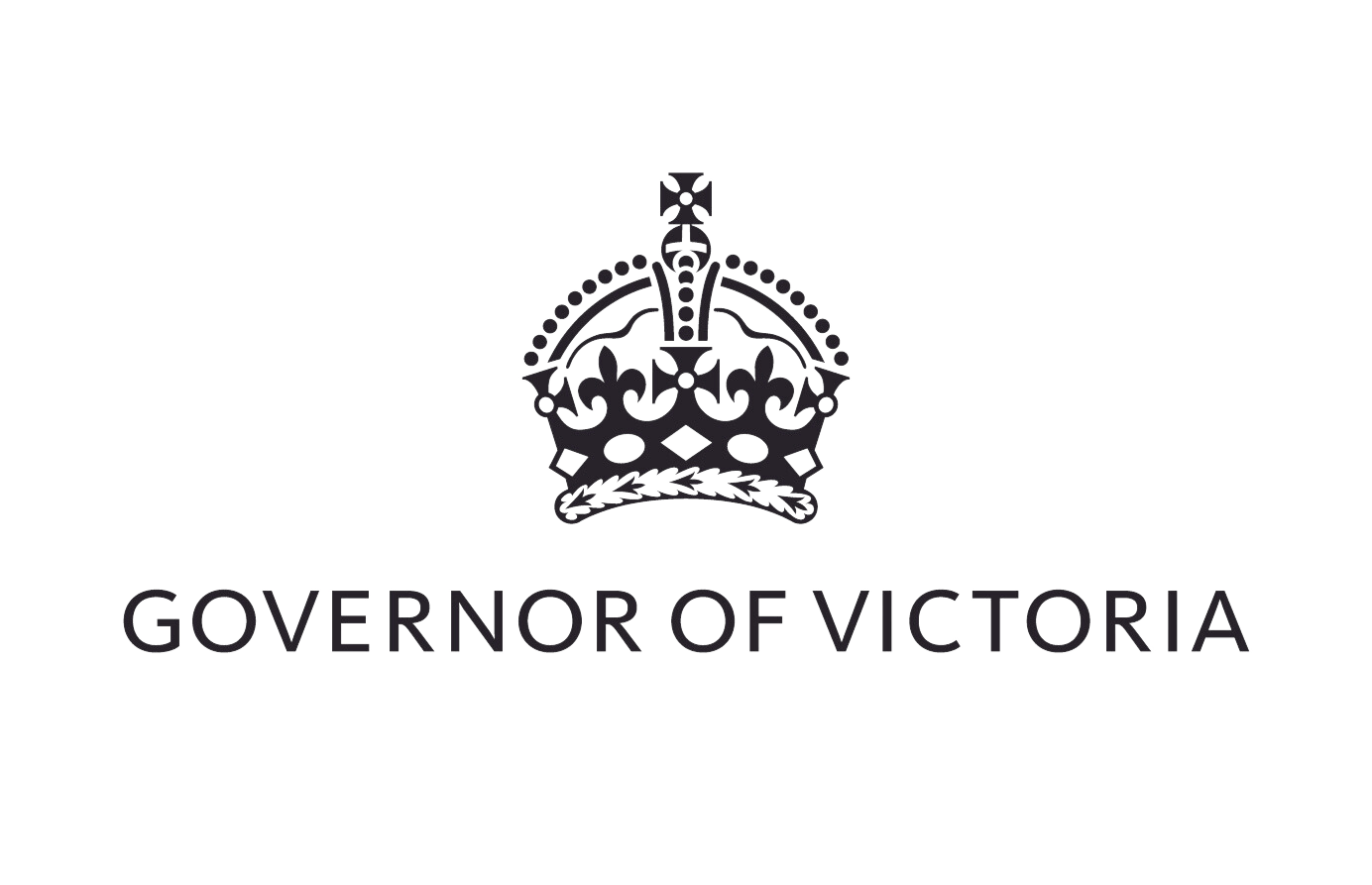Speech given by the Governor at the 2024 Australia Day Flag Raising Ceremony.
I begin by acknowledging the Traditional Owners of the unceded lands that we meet on today – the Wurundjeri and Bunurong people – and pay my respects to their Elders, past and present. Thank you to Daniel Ross for his warm welcome.
Let me welcome, and also thank, those who are joining this flag-raising on Australia Day 2024.
A short distance from here the Botanical Gardens has an area that recreates and regenerates the trees, bushes, grasses and flowers that covered the slopes and hugged this river before the land was cleared – before the colony of New South Wales reached out to form the settlement they named Port Phillip. A city we now call Melbourne.
This part of the Gardens is a clear, if understated, reminder of the land as it was used and shaped by the Indigenous people before Britain claimed this place. I mention this nearby area because it is a different and tangible acknowledgement of Country. And on this Australia Day in 2024, we have cause to reflect on how we choose to celebrate Australia.
26 January did not become the Australia Day national public holiday for all states and territories until 1994.
The date chosen marks the landing of the First Fleet in Sydney Harbour in 1788 - it is unambiguously the founding date for the colony of New South Wales. Of course, the States and territories that now make up Australia were all founded on different days.
Our own state, Victoria, marks its separation from New South Wales as 1 July 1851.
And the Commonwealth of Australia was declared on 1 January 1901 after the British Parliament passed legislation allowing the six colonies to govern collectively and in their own right.
I believe most Australians are happy to have a day to celebrate Australia – and summer is a celebratory time of year. Yet the choice we made in 1994 is now contested. We are not agreed on what we should celebrate and on the date that should be the moment for our celebrations of Australia.
What should we celebrate?
Australia as a place has a longer history than as a nation, but both have had a relatively short existence under this name. Before colonisation, this island continent we occupy had many peoples and many names, but not one single name covering the whole island continent that was agreed by the people living here.
Mapmakers, explorers, and navigators from the Northern Hemisphere had a name for this place they had not visited – ‘Terra Australis Incognita’ – the unknown South land. Matthew Flinders who circumnavigated this continent in 1803 used the name Australia for this land on his map. The Governor of New South Wales, Lachlan Macquarie, used that name in a dispatch to the Colonial Office in London and in 1828, British legislation used the name Australia to refer to the combined colonies of New South Wales and Van Diemen’s Land.
So first, a land called Australia was marked on maps, but there was no nation called Australia, and no people who could be named Australians until Federation in 1901 Indeed Australians were technically not Australian citizens until 26 January 1949 with the Nationality and Citizenship Act. It took a referendum in 1967 before Aboriginal and Torres Strait Islander peoples were formally acknowledged as part of our nation’s population.
Australia, the land and the nation, has been developing and unfurling its identity over some two centuries. We have much to celebrate.
We can celebrate that this Australia is a Great South Land, acknowledging “its beauty and its terror” as the words of Mackellar’s poem go. We can appreciate that, in January, it can be easy to “love a sunburnt country.”
We have opened our shores to people from many lands and nations and asked those who came to help define this nation.
We have a democracy that can peacefully disagree about what we believe is worthy of commemoration on Australia Day and when.
We are all part of making an Australia to celebrate.
We also have cause to be sorry for some of what we have done or how long it has taken us to do some things necessary to our future wellbeing.
But we are not done. This nation was not set in stone on one day or in one document.
On Australia Day, we can expect to go the water or lie on the grass under sparkling blue skies and in the words of that iconic Australian film “feel the serenity.”
We can join with and enjoy all the peoples, cultures and communities that have made us and will continue to make us.
If we reflect on the Botanical Gardens that surround us at this ceremony today, we can learn from the marvellous combination of art and science they represent in Victoria – in Australia.
We can see the land as it was before European settlement, and we can appreciate the art and beauty that we have built over a century in the form and flora of these gardens – gardens that draw on contributions from many lands and nations.
And we can also, at the same time, be proud of the science that enables us to understand what we have here, how we can respond to changing times and climates and build new knowledge for the future.
As we celebrate Australia Day, we can promise ourselves that we will understand and learn from our past, but also look forward to all that we can and should be. We can make Australia Day a time for all of us to celebrate.
